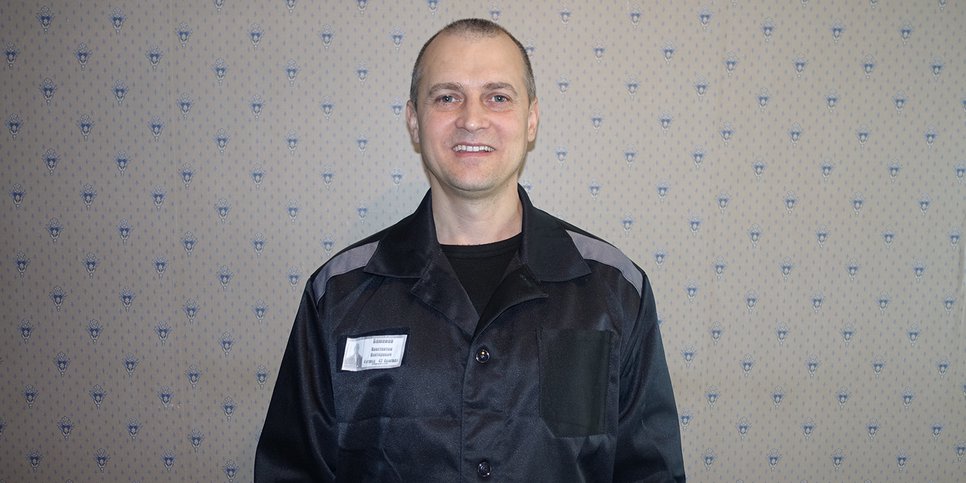Photo: Konstantin Bazhenov in the prison visiting room during a lawyer’s visit. Dimitrovgrad. 27 February 2020
Photo: Konstantin Bazhenov in the prison visiting room during a lawyer’s visit. Dimitrovgrad. 27 February 2020
The Court left Konstantin Bazhenov, convicted for his faith, in prison, despite meeting requirements for a release
Saratov Region, Ulyanovsk RegionOn October 28 judge of Dimitrovgrad city court Dmitry Russky refused to soften the sentence of Jehovah's Witness Konstantin Bazhenov convicted for 3.5 years of colony and to replace the part of term not completed with a fine. The defense will appeal against this decision.
"Unfortunately, to some extent Konstantin and I expected such a decision," said Irina Bazhenova, Konstantin's wife, after the trial, implying that under conditions of repressions against Russian Jehovah's Witnesses, courts can easily ignore the exemplary behavior of believers in places of detention.
According to Yaroslav Sivulsky, a representative of the European Jehovah's Witnesses Association, the reason for the court's refusal was the fact that the believer is on the preventive record as "a person convicted of extremist activity". "All Jehovah's Witnesses convicted of faith automatically receive this status, which deliberately puts them in a vulnerable position. Also, despite the positive characterization from the colony, the correctional facility and the prosecutor did not support the request to release the believer for unclear reasons," Sivulsky said.
To this day, Konstantin Bazhenov has served four fifths or more than 80% of the sentence imposed by the court. In addition, as the lawyer of the believer said on the eve of the trial, "Konstantin ... has various awards, behaves respectfully and correctly towards the staff of the penitentiary system, is not in conflict, is an exemplary family man".
Konstantin Bazhenov, 45, has been in Dimitrovgrad penal colony since February 2020. In September 2019 a court found Konstantin and five of his fellow believers guilty of extremism for not giving up their peaceful religious beliefs.






